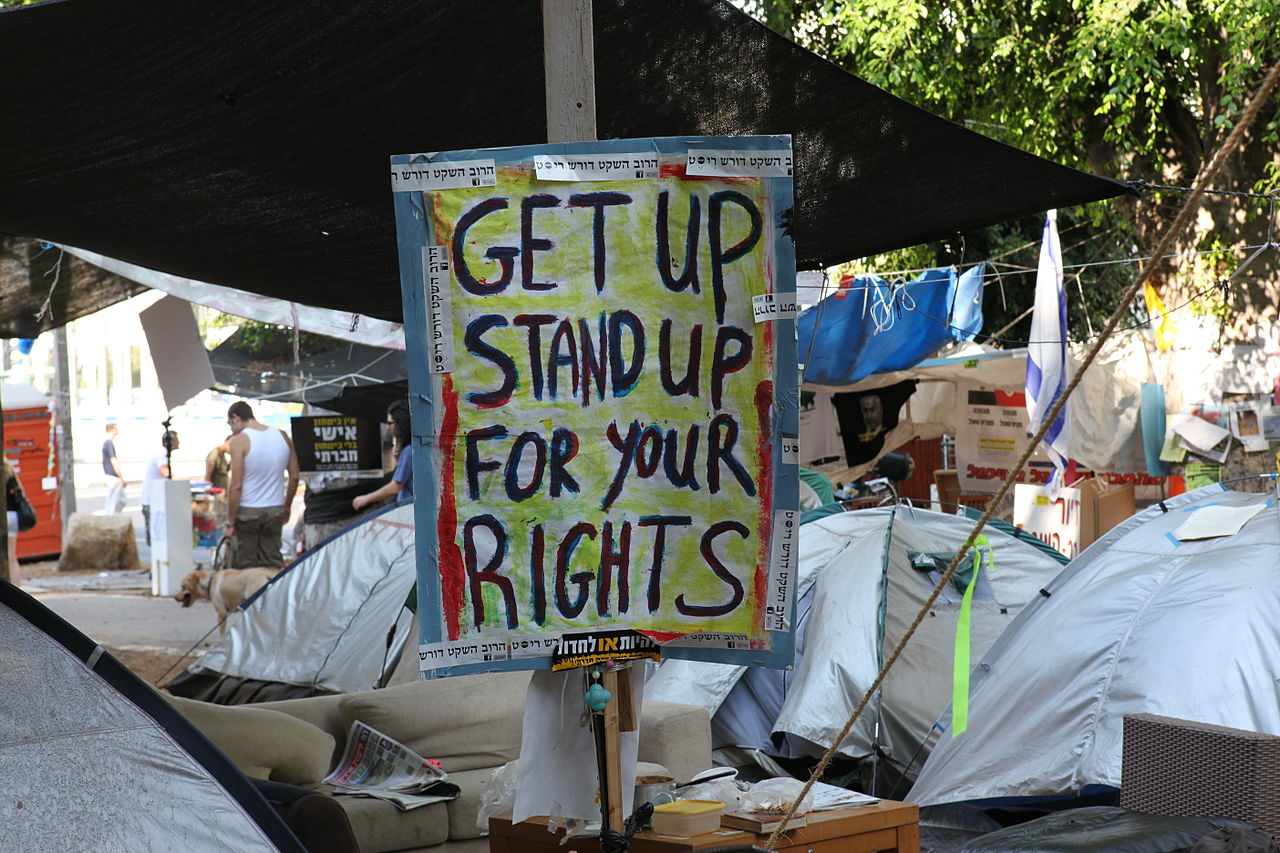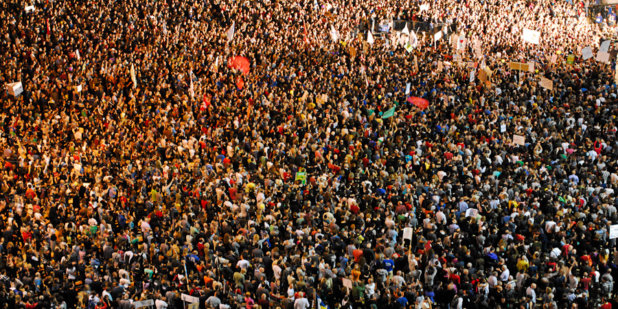- About
- Topics
- Picks
- Audio
- Story
- In-Depth
- Opinion
- News
- Donate
-
Signup for our newsletterOur Editors' Best Picks.Send
Read, Debate: Engage.
Tel-Avivians didn’t take too serious, when it all started on the 14th of July, 2011, but wihthin a number of days an impressing colony of popped-up camping tents stretched out on nearly the whole length of Rothschild-Avenue, the tree-lined glamourous mile of down-town Tel-Aviv, purled by precious Bauhaus-Buildings as well as luxurious residential- and business-towers.
Inspired by similar events taking place in Bueonos-Aires and Barcelona at those times, furthermore by the Occupy Wall Street movement and after all by the uprisings of the Arab Spring something happened now in Tel-Aviv at this summer.
There were music circles, improvised kitchens, party games, art installations, but above all, deep conversations between strangers, from completely different social circles, talking about the constant bank overdraft, rent, and the realization that the future is not going to make it better. Different ages, different, yet similar, struggles, and one clear feeling: the financial system must change.
 Protesters' tents on Rothschild Boulevard in Tel Aviv
Protesters' tents on Rothschild Boulevard in Tel Aviv
Five years later, the costs of living are as high, housing is even more expensive, and the financial methods leading to the protest is still in power. The hundreds of thousands of people from all around the country, who participated in the protest, in the demonstrations, tent cities, and Facebook groups, are still fighting. Not against the government, but with day-to-day life. That summer ignited their rage, and hope with it. But as autumn arrived, most of them returned to their routine of life, to the burdens of making a living and paying the bills, to work, to the kids, to survival. With a more realistic view, with raised awareness, but in most cases, more despair. For most of them, what initially burst out as a town square protest across the country, eventually transformed into a change in consciousness, simmering beneath the surface. A skeptical approach towards the government and businessmen too closely associated with it, together with changes to consumption habits, financial understanding, and decision making.
But for some, the change was far more quick and dramatic. Those are people who went out to the streets, whose world was shaken by the protest. They found a new calling for life, went off the path they had been walking in, moved out of flats and left jobs, opened up savings accounts, and paved a new path for themselves. They came out of the protest as agents of change. Five years later, they describe their moment of revelation, and life after experiencing it.
In each of the six following items always one of the leading participants in the Tel-Aviv tent revolt of the year 2011 will share their stories about how the social justice protests turned them into different people, proving that its aftereffects would continue to change the face society in the long term
